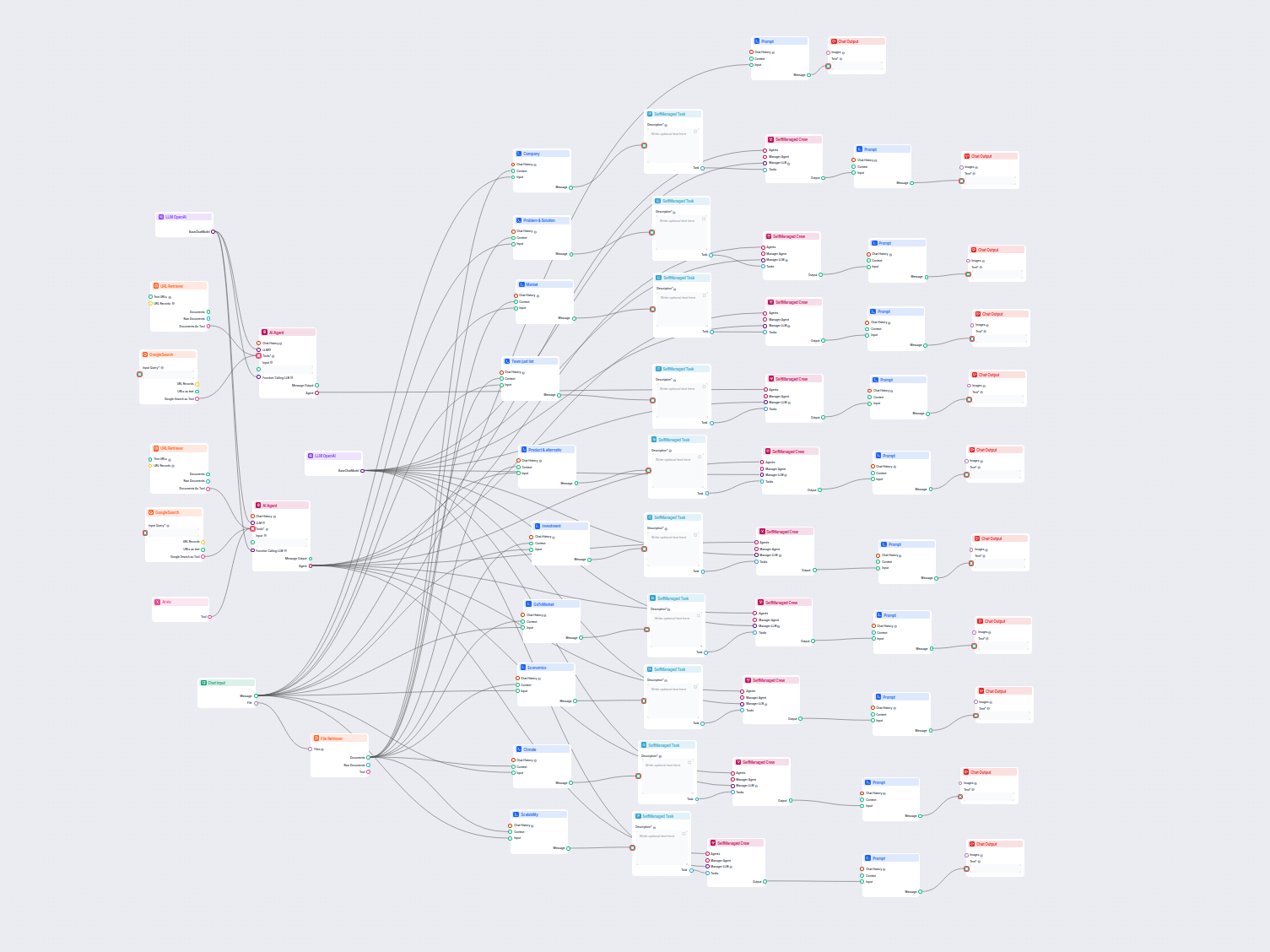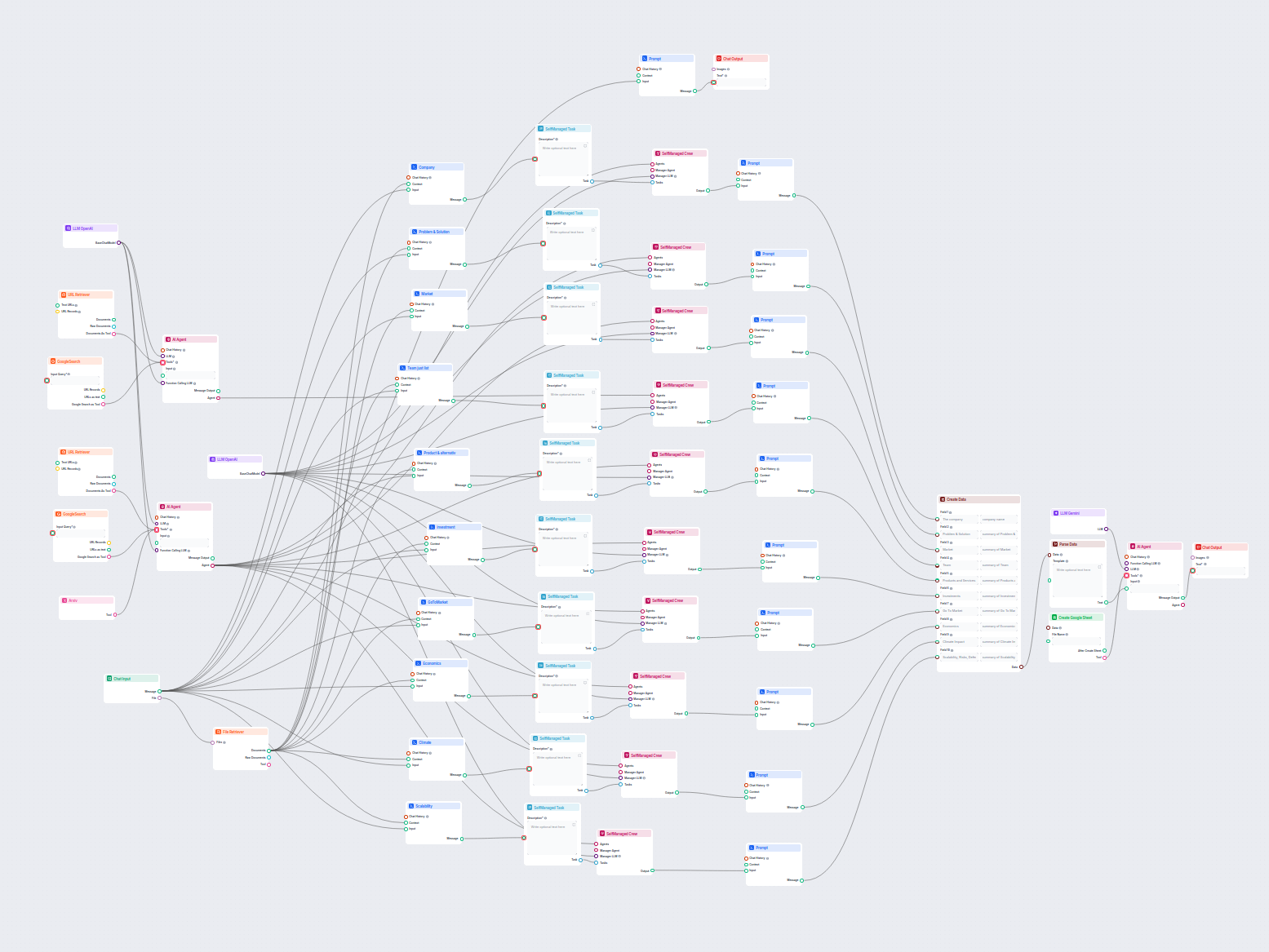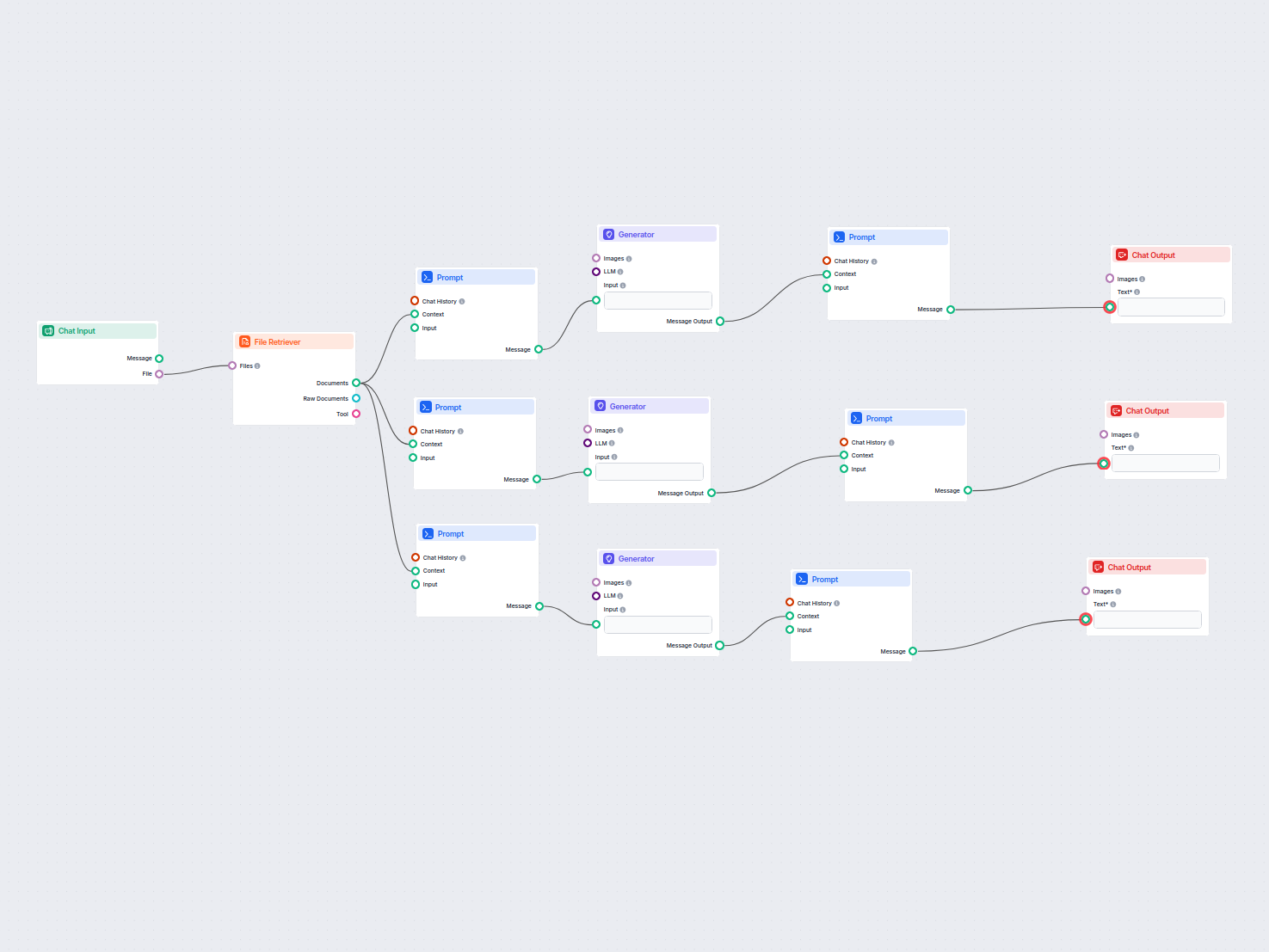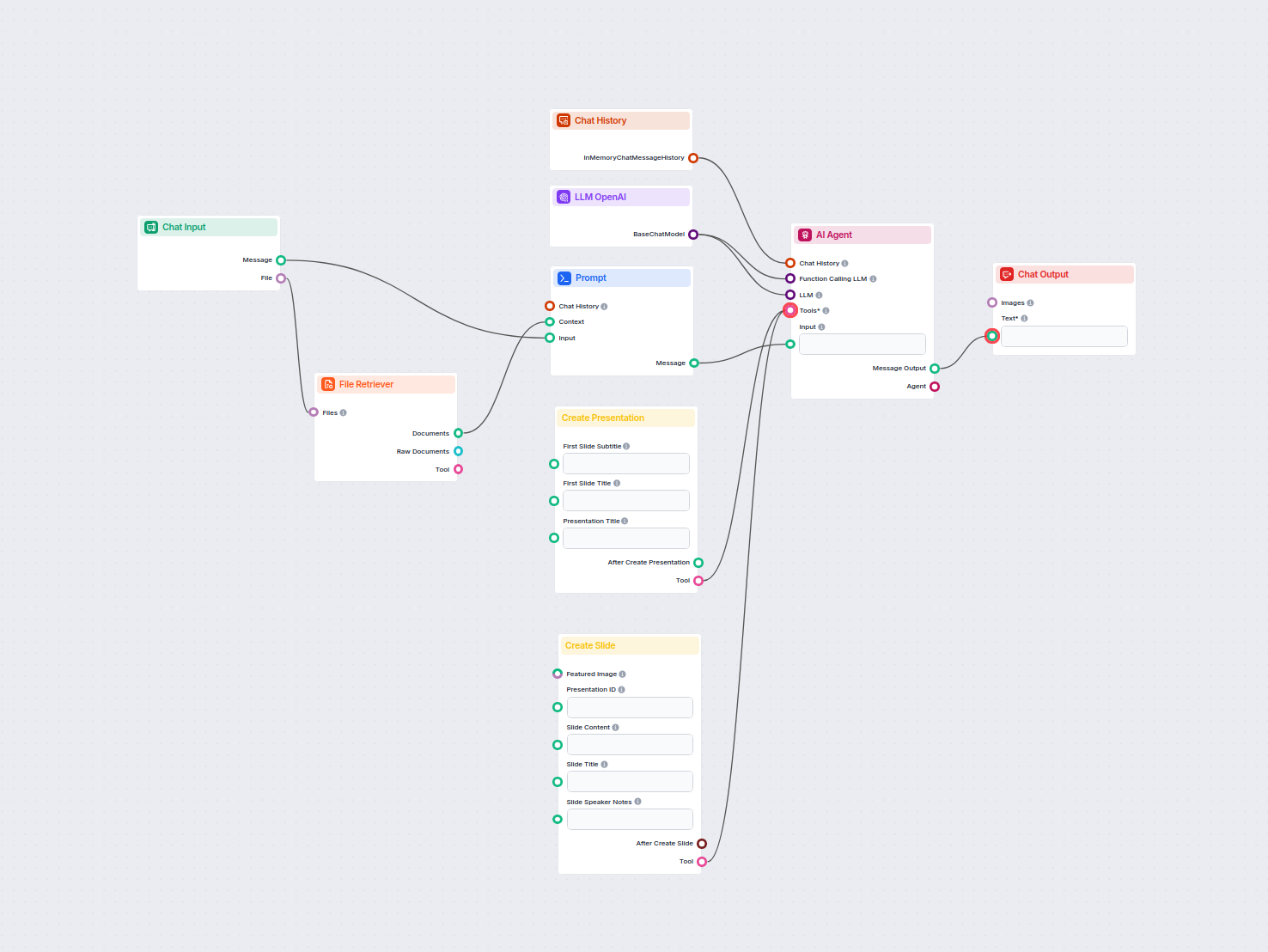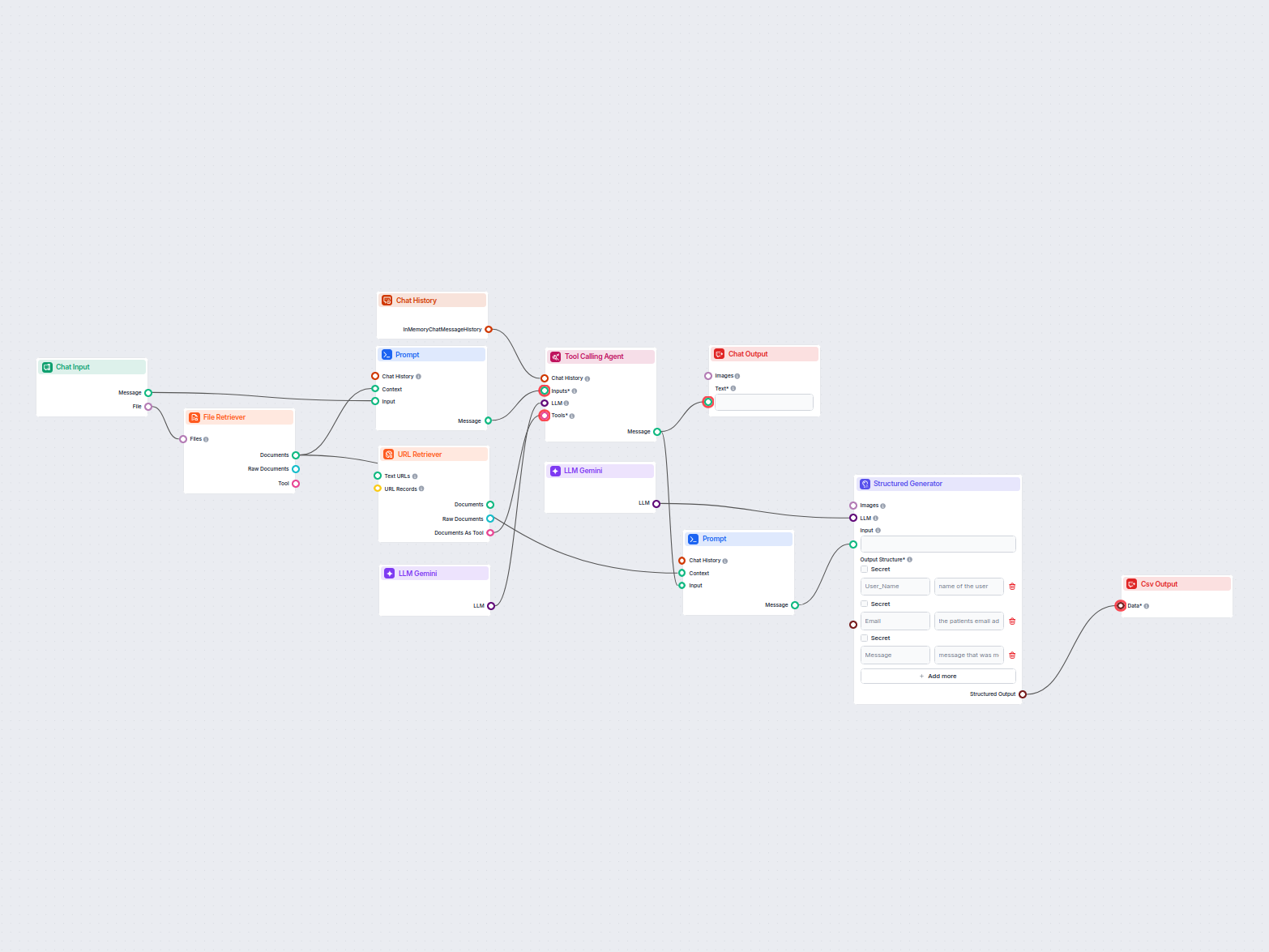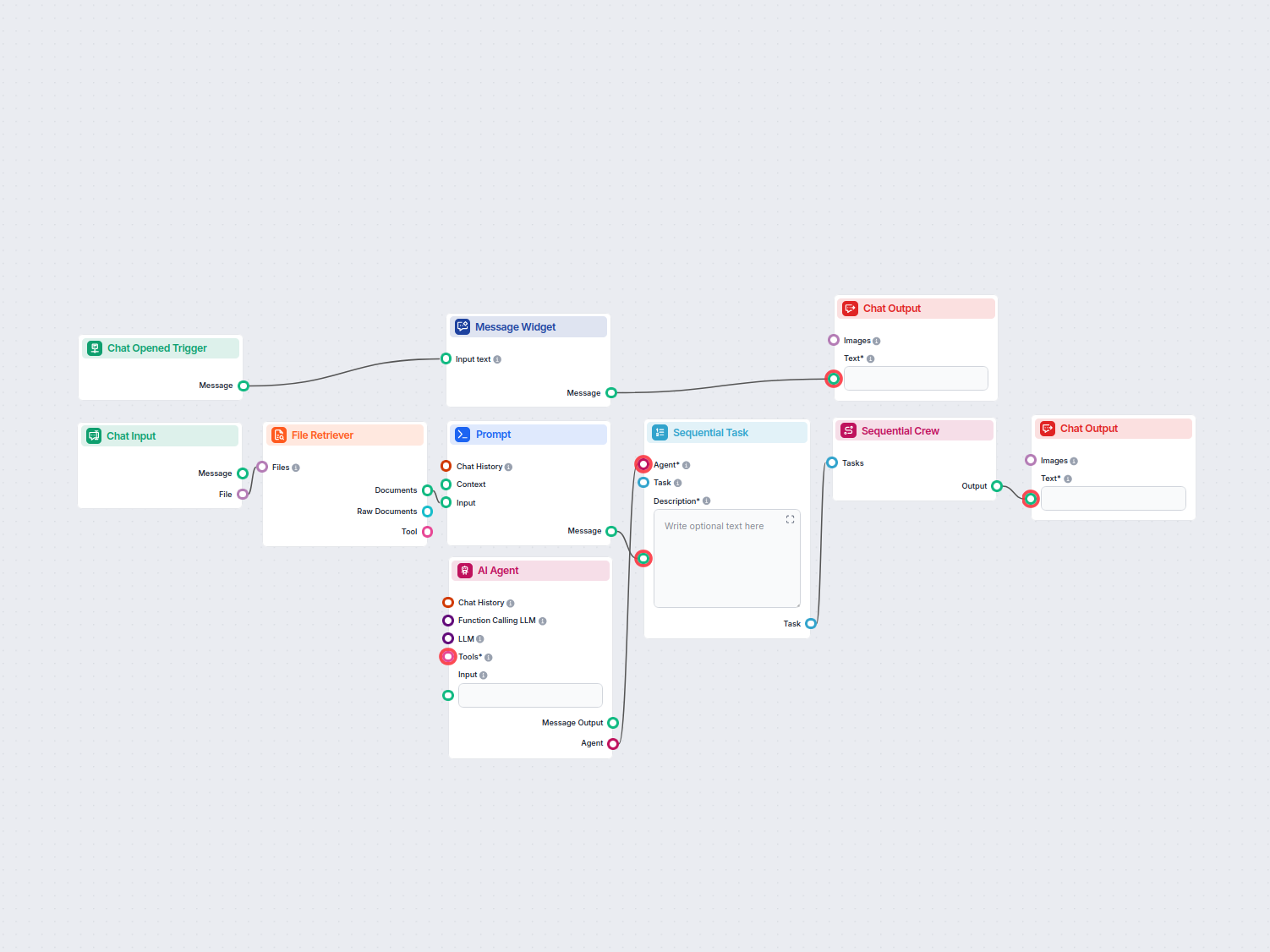
AI Brainstorming & Value Proposition Generator
This AI-powered workflow helps product managers and marketers instantly brainstorm innovative ideas and uncover value propositions. Users can input their contex...

Turn uploaded files into accessible documents within your flow, with options for OCR and document processing strategies.
Component description
The File Retriever is a flow component designed to extract and convert the contents of files into structured documents, making them accessible for further processing in your AI workflows. This component is especially useful when you need to integrate knowledge from user-uploaded files or documents as part of your AI pipeline, such as for document analysis, summarization, or retrieval-augmented generation tasks.
At its core, the File Retriever takes one or more file attachments and processes them to extract their textual content, transforming them into documents that can be used downstream in your workflow. It offers advanced options such as Optical Character Recognition (OCR) for image-based documents, customizable extraction strategies, and output token control.
| Input Name | Description | Type | Default / Options | Advanced |
|---|---|---|---|---|
| Files | Files to convert into documents. | FlowSessionAttachmentResponse | — (User uploads or provides files) | No |
| Apply OCR | Apply OCR to extract text from image-based documents. Useful for scanned PDFs, images. | Boolean | false | Yes |
| Max Tokens | Maximum number of tokens in the output text. Controls the size/length of extracted text. | Integer | 3000 | Yes |
| Strategy | Strategy for transforming documents: - Concat documents, fill from first up to tokens limit - Include equal size from each documents | String (Dropdown) | Include equal size from each documents | Yes |
| Tool Name | Optional name to refer to this tool in agent-based workflows. | String | — | Yes |
| Tool Description | Optional description to help agents understand how to use this tool. | String (Multiline) | — | Yes |
| Verbose | Whether to print verbose output (for debugging or detailed logs). | Boolean | false | Yes |
The component provides multiple outputs to suit different downstream needs:
| Output Name | Type | Description |
|---|---|---|
| Documents | Message | Processed documents as message objects, ready for workflow use. |
| Raw Documents | Document | The raw extracted documents, giving you direct access to content. |
| Tool | Tool | The documents made available as a tool for agent-based workflows. |
This component provides a robust, flexible foundation for incorporating external file content into your AI-driven processes, enhancing the intelligence and adaptability of your workflows.
To help you get started quickly, we have prepared several example flow templates that demonstrate how to use the File Retriever component effectively. These templates showcase different use cases and best practices, making it easier for you to understand and implement the component in your own projects.
This AI-powered workflow helps product managers and marketers instantly brainstorm innovative ideas and uncover value propositions. Users can input their contex...
Comprehensive AI-driven workflow for company analysis and market research. Automatically gathers and analyzes data on company background, market position, produ...
This AI-powered workflow delivers a comprehensive, data-driven company analysis. It gathers information on company background, market landscape, team, products,...
This AI-powered workflow streamlines the process of tailoring a user's CV to match a specific job posting. By analyzing both the original CV and the job descrip...
Transform your meeting attachments into actionable summaries, follow-up emails, and blog posts with AI. This workflow automates content creation from your meeti...
Automate the creation of professional Google Slide presentations from any uploaded document using AI. This workflow extracts document content, generates structu...
This workflow extracts and organizes key information from emails and attached files, utilizes AI to process and structure the data, and outputs the results as a...
Effortlessly turn the content of your PDFs or presentation slides into high-ranking, structured blog post ideas using AI. Upload your document and get tailored ...
It allows you to upload files and automatically converts them into documents, which can then be used in your workflow for further processing or as knowledge sources.
Yes, it supports OCR (Optical Character Recognition), enabling extraction of text from images within documents.
You can configure strategies for document extraction, such as combining content or distributing text evenly, and set limits with max token options.
It can output processed documents in formats suitable for messaging, raw document use, or as tools for agents within your flow.
No, the component is designed to be user-friendly, with configurable options for both basic and advanced needs.
Easily extract and process files as documents in your AI workflows. Explore the flexibility of the File Retriever component today.
Integrate your workflows with Google Docs using the Google Docs Retriever component—seamlessly fetch document content for use in automations, chatbots, or knowl...
Unlock web content in your workflows with the URL Retriever component. Effortlessly extract and process the text and metadata from any list of URLs—including we...
FlowHunt's Document to Text component transforms structured data from retrievers into readable markdown text, giving you precise control over how data is proces...
Cookie Consent
We use cookies to enhance your browsing experience and analyze our traffic. See our privacy policy.
